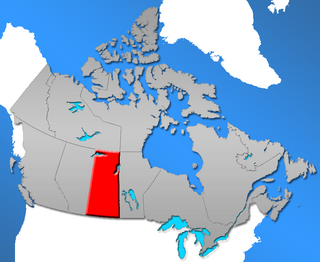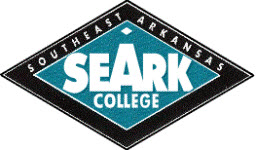An associate degree is an undergraduate degree awarded after a course of post-secondary study lasting two or three years. It is a level of qualification between a high school diploma or GED and a bachelor's degree.

The Gwichʼin language belongs to the Athabaskan language family and is spoken by the Gwich'in First Nation (Canada) / Alaska Native People. It is also known in older or dialect-specific publications as Kutchin, Takudh, Tukudh, or Loucheux. Gwich'in is spoken primarily in the towns of Inuvik, Aklavik, Fort McPherson, and Tsiigehtchic, all in the Northwest Territories and Old Crow in Yukon of Canada. In Alaska of the United States, Gwichʼin is spoken in Beaver, Circle, Fort Yukon, Chalkyitsik, Birch Creek, Arctic Village, Eagle, and Venetie.

Nunavut Arctic College is a public community college in the territory of Nunavut, Canada. The college has several campuses throughout the territory and operates as a public agency funded by the territorial government.

Yukon University is a public university in the Canadian territory of Yukon. The university main campus is based in Whitehorse, although the institution also operates several off-campus campuses and facilities throughout the territory. The university confers bachelor's degrees, diplomas, as well as offer vocational training. The institution is the only university-based in northern Canada.
Aurora College, formerly Arctic College, is a college located in the Northwest Territories, Canada with campuses in Inuvik, Fort Smith and Yellowknife. They have learning centres in 23 communities in the NWT. The head office for Aurora College is located in Fort Smith.
Nunavut Tunngavik Incorporated is the legal representative of the Inuit of Nunavut for the purposes of native treaty rights and treaty negotiation. The presidents of NTI, Makivik Corporation, Nunatsiavut, and the Inuvialuit Regional Corporation, the four regional land claims organizations, govern the national body, the Inuit Tapiriit Kanatami (ITK) as its board of directors. NTI continues to play a central role in Nunavut, even after the creation of the Government of Nunavut. As the successor of the Tunngavik Federation of Nunavut, which was a signatory of the Nunavut Land Claims Agreement on behalf of Inuit, NTI is responsible for ensuring that the Nunavut Land Claims Agreement is implemented fully by the Government of Canada and the Government of Nunavut and that all parties fulfill their obligations.
California Pacific University or Cal Pacific University was a private business school dedicated to the instruction in all aspects of business at the bachelor's, master's and doctoral levels, and located in Escondido, San Diego County. The university was aimed towards working professionals in business management and was recognized by the California Department of Education as a higher education degree-granting institution. Its graduates and alumni include professionals in business, government, academia, federal and state employees, law, authors, healthcare, technology, and finance.
The Wisconsin Center for the Advancement of Postsecondary Education (WISCAPE) was established in 2001 on the University of Wisconsin–Madison campus by former UW–Madison Chancellor David Ward.
The California Postsecondary Education Commission (CPEC) was the higher education planning and coordinating agency of the government of the U.S. state of California. It closed in 2011.

Higher education in Ontario includes postsecondary education and skills training regulated by the Ministry of Colleges and Universities and provided by universities, colleges of applied arts and technology, and private career colleges. The current minister is Ross Romano who was appointed in June 2019. The ministry administers laws covering 22 public universities, 24 public colleges, 17 privately funded religious universities, and over 500 private career colleges. 18 of the top 50 research universities in Canada are in Ontario.

Higher education in Canada describes the constellation of provincial higher education systems in Canada and their relationships with the federal government, provinces, and territories.

Higher education in Manitoba traces the development and expansion of higher education in the Canadian province of Manitoba. In Canada, education is a provincial concern and there is no national regulation nor accrediting body.

Historically, Saskatchewan's higher education system has been "significantly shaped" by demographics. In 1901, six years prior to the 1907 founding of a university in Saskatchewan, the urban population in Saskatchewan was 14,266 (16%) while the rural population was 77,013 (84%). One hundred years later, the proportions had changed significantly: urban population in 2001 was 629,036 (64%) while the rural population was 349,897 (36%). Over time the province's higher education system has changed significantly in response both to this demographic shift and to provincial politics.

Higher education in Prince Edward Island refers to education provided by higher education institutions in the Canadian province of Prince Edward Island. In Canada, education is the responsibility of the provinces and there is no Canadian federal ministry governing education. Prince Edward Island has one university, the University of Prince Edward Island authorized to grant degrees, and two community colleges, Holland College, which operates centres across the province, and Collège de l'Île, which offers post secondary education in French. The governing body for higher education in Prince Edward Island is the Department of Innovation and Advanced Learning, headed by the Minister of Innovation and Advanced Learning, the Honourable Allen Roach.

Higher education in the Northwest Territories traces the development and expansion of higher education in Canada's Northwest Territories. In Canada, education is a provincial or territorial concern and there is no national regulation nor accrediting body.

Higher education in Nunavut allows residents of this Canadian Arctic territory access to specialized training provided at post-secondary institutions. There are some unique challenges faced by students wishing to pursue advanced training in Nunavut, a vast territory stretching across Arctic Canada from Hudsons Bay to the north pole. The territory was split from the Northwest Territories in 1999, following a successful plebiscite which affirmed Inuit desires to establish an independent political jurisdiction. Covering one-fifth of Canada's area and over 60% of its coastlines, the territory had a population of 31,153 in 2010.

Saybrook University is a private graduate university in Pasadena, California. It was founded in 1971 by Eleanor Camp Criswell and others. It offers postgraduate education with a focus on humanistic psychology. It features low residency, master's and doctoral degrees and professional certification programs. The university is regionally accredited by the Senior Colleges and Universities Commission of the Western Association of Schools and Colleges (WASC). The university is classified as a Research Doctoral: Humanities/social sciences-dominant institution by the Carnegie Classification of Institutions of Higher Education. As of 2016 the university had 622 students enrolled. The university reports 222 full time and part time academic faculty.
Frederick Howard Collins was Commissioner of Yukon from 1955 to 1962. He succeeded Wilfred George Brown and was followed in the position by George Robertson Cameron. The Yukon territorial government today resembles those in the Canadian provinces, i.e., parliamentary and with a Premier. But historically, and during the term of Collins, the federally-appointed Commissioner was the actual chief executive of the territory. Collins brought with him to the Yukon a long tenure in the Canadian army. Serving in both world wars, he had risen to the rank of Lieutenant Colonel. He also came with his experience as a civil servant in the Federal Treasury Board.

Southeast Arkansas College (SEARK) is a public community college in Pine Bluff, Arkansas. Formerly a vocational-technical school, the state legislature designated the school as a college in 1991 with the name Pines Technical College. It acquired its current name in 1998.












